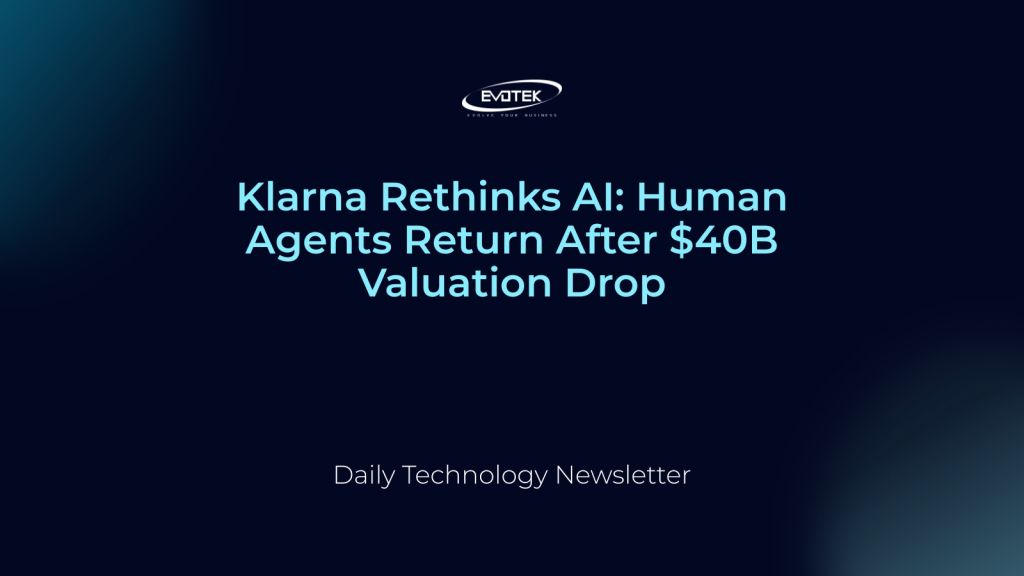Fintech giant Klarna is reversing course on its AI-first customer service strategy, with CEO Sebastian Siemiatkowski announcing a renewed focus on human interaction. This shift comes after the company experienced a significant drop in valuation, prompting a reassessment of its operational model.
AI Overreach Leads to Rehiring Spree
Siemiatkowski admitted that prioritizing cost efficiency through AI led to a decline in customer service quality. Klarna is now actively recruiting customer support agents, signaling a move back to a more balanced approach.
The “Uber” of Customer Support
Klarna is piloting an innovative remote-work model, likened to “an Uber type of setup,” allowing individuals, including students and those in rural areas, to provide on-demand customer support. This initiative aims to tap into a pool of passionate Klarna users and enhance service responsiveness.
AI Still a Core Component
Despite the renewed emphasis on human agents, Klarna remains committed to leveraging AI across its operations. The company is rebuilding its technology infrastructure with AI at its core, focusing on improving efficiency and developing a digital financial assistant to offer customers better financial deals.
Klarna’s collaboration with OpenAI remains strong, with Siemiatkowski emphasizing their early partnership and desire to be a “favorite guinea pig” for AI innovation.
From Boom to Reassessment
Klarna’s valuation plummeted from $45.6 billion in 2021 to $6.7 billion in 2022. While the company has since recovered, with plans for a potential IPO, the experience has prompted a strategic recalibration.
The company’s announcement in 2024 that AI had replaced 700 human agents sent shockwaves through the industry, impacting shares of companies like Teleperformance SE.
Workforce Evolution Continues
Even with the rehiring efforts, Klarna anticipates a reduction in overall headcount through attrition. Siemiatkowski projects a decrease from 3,000 to around 2,500 employees, with further downsizing possible as AI technology advances.
“I feel a bit like Elon Musk,” Siemiatkowski joked, referencing the unpredictable timeline of technological advancements. “I think it’s very likely within 12 months.”
This strategic pivot highlights the ongoing debate about the optimal balance between AI and human interaction in customer service and the importance of adapting to evolving market demands.

 日本語
日本語 한국어
한국어 Tiếng Việt
Tiếng Việt 简体中文
简体中文